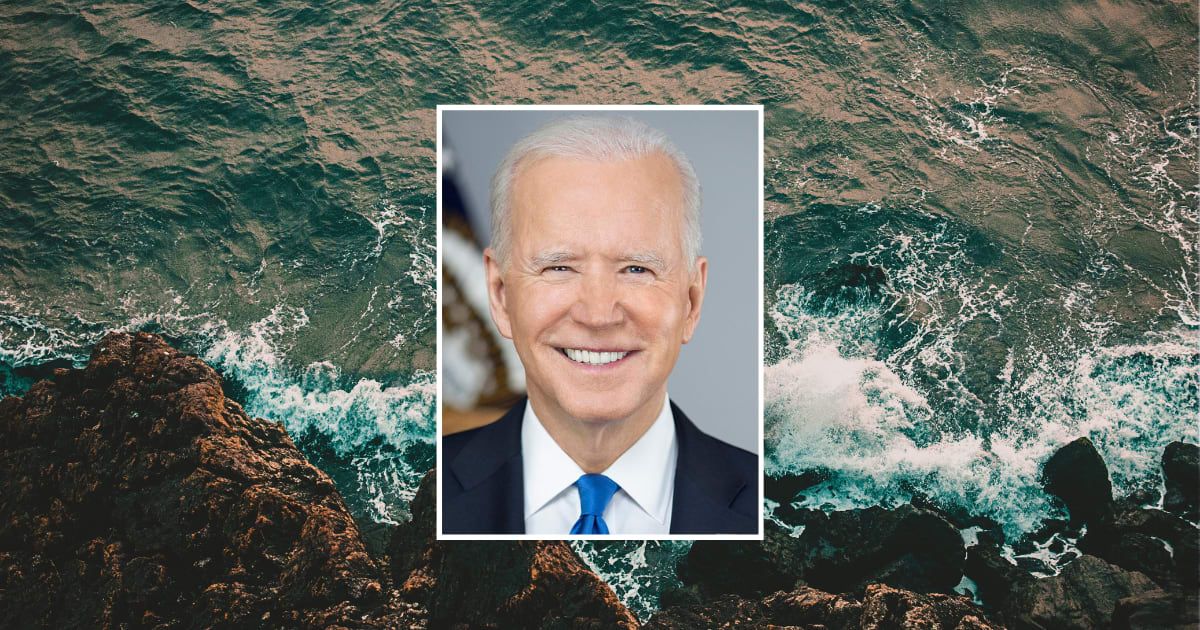Ocean Justice Strategy: Biden administration announces first-ever move to address 'historic inequities'

LOS ANGELES, CALIFORNIA: In a groundbreaking announcement during the United Nations Conference of Parties (COP28) on Friday, December 8, the Biden-Harris Administration revealed the inaugural US Ocean Justice Strategy.
This strategic initiative aims to promote environmental justice for communities reliant on the ocean and Great Lakes for economic, cultural, spiritual, recreational, and food security purposes.
The federal government outlined its commitment to integrating principles of equity and environmental justice in federal ocean activities. This encompasses conservation efforts, the management of marine resources, and infrastructure projects.

In a press release, the administration noted the importance of addressing historical injustices, particularly affecting indigenous communities that have long served as stewards of marine habitats.
Brenda Mallory, Chair of the White House Council for Environmental Quality, highlighted the significance of the Ocean Justice Strategy, stating, “The ocean is a life source for us all, but because of historic injustices and underinvestment, some communities are hit harder by devastating climate change impacts."
“The Biden-Harris Administration’s new Ocean Justice Strategy will help to address historic inequities, improve the well-being of people in communities connected to the ocean, and safeguard a healthy ocean for everyone," Mallory added.
The administration developed this visionary strategy through a consultative process, incorporating public comments and engaging in consultations with Tribal nations, US Territories, and Native Hawaiian organizations. The strategy intentionally includes input from marginalized groups, such as Black, Latino, and Native communities.
The Ocean Justice Strategy builds upon the Biden Administration’s Ocean Climate Action Plan, released in March 2023, which advocated for the creation of this comprehensive approach.
Arati Prabhakar, Director of the White House Office of Science and Technology, stated, “President Biden has made it a priority to address the climate crisis for all Americans. This strategy clearly sets out our values as the climate changes. When we conduct research, collect data, and make decisions about the ocean, we must engage with communities whose lives are intertwined with the ocean and the Great Lakes.”
What is Ocean Justice Strategy?
The Ocean Justice Strategy, detailed in the Federal Register, outlines the vision, goals, and high-level objectives for coordinating and guiding ocean justice activities across the federal government. Serving as a reference for various levels of government and non-governmental groups, it lays the groundwork for future specifics.
The overarching goals of the strategy include:
1. Embedding Ocean Justice in Federal Activities: This involves meaningful community engagement, enhanced equity in funding processes, and improved interagency coordination.
2. Developing a Diverse, Equitable, Inclusive Federal Ocean Workforce: The strategy aims to grow federal staffing capacity, increase diversity in the ocean workforce, and recruit and retain students and early-career professionals.
3. Enhancing Ocean Justice Through Education, Data, and Knowledge: This includes expanding ocean education, incorporating Indigenous Knowledge in federal research, applying an ocean justice lens to research, and expanding tools for characterizing social and environmental justice patterns.
Beth Lowell, Oceana's Vice President for the United States, commended the administration's commitment, stating, "It is often the most vulnerable communities that suffer the greatest impacts from climate change. We celebrate the Biden administration’s commitment to ensure that these voices are heard in future government decisions."
Voices for inclusion in ocean conservation
The announcement garnered positive reactions from environmental advocates. Marce Gutierrez-Graudins, Founder and Executive Director of Azul, a nonprofit focusing on Latinos at the intersection of ocean conservation and environmental justice, emphasized the importance of inclusivity in ocean conservation efforts.
Gutierrez-Graudins stated, “For too long the ocean conservation movement has been pretty exclusionary. It is important that we have policies that include and serve everybody because conservation measures do not work unless they have majority buy-in. I’m excited to see that the federal government is walking along on this.”
As the Ocean Justice Strategy takes center stage, advocates believe that incorporating diverse perspectives will lead to more successful and equitable outcomes in ocean conservation. Offshore drilling, fisheries management, and reducing plastic pollution are identified as key areas where these voices will play a crucial role.
“We have had disproportionate burdens placed on Indigenous communities and communities of color, due to ocean pollution, lack of access, and industrial development,” Gutierrez-Graudins said, as quoted by USA Today. “Having an ocean justice policy will protect the ocean for all.”










